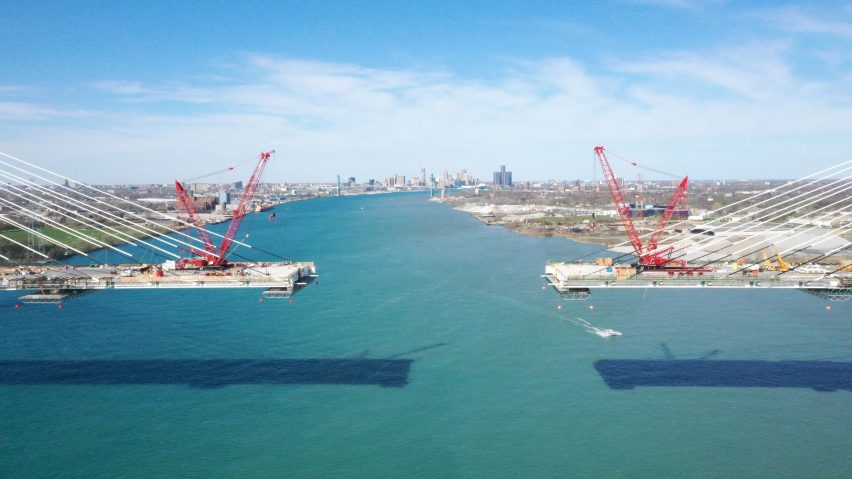
"Longest cable-stayed bridge" in North America nears completion above Detroit River
The Gordie Howe International Bridge designed by infrastructure firm AECOM, which will link USA and Canada over the Detroit River, is set to connect later this month.
Connecting Windsor, Canada, to Detroit, USA, the Gordie Howe International Bridge has been under construction since 2018 and will become the longest cable-stayed bridge in North America when it completes.
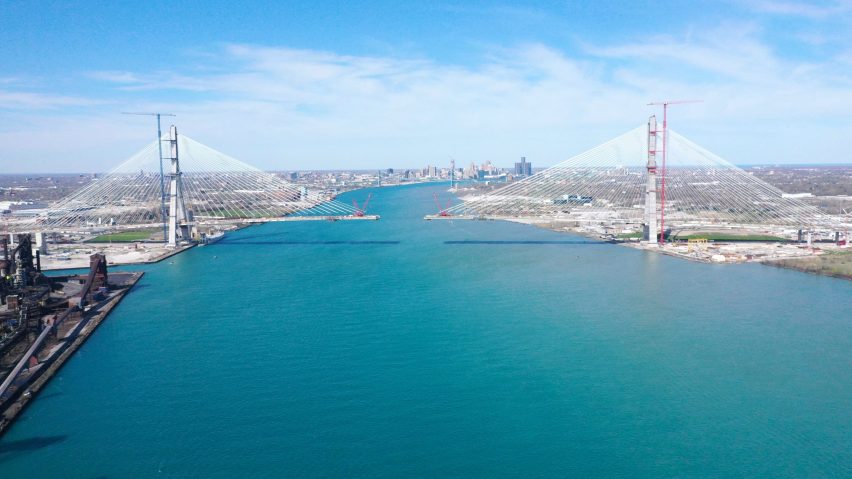
Approximately 36 feet (11 metres) of unbuilt bridge deck remain between the US and Canadian side, with each side currently extending over the Detroit River.
Crews will complete one more 49-foot (15 metre) segment on the US side before working on the last section, known as the mid-span closure.
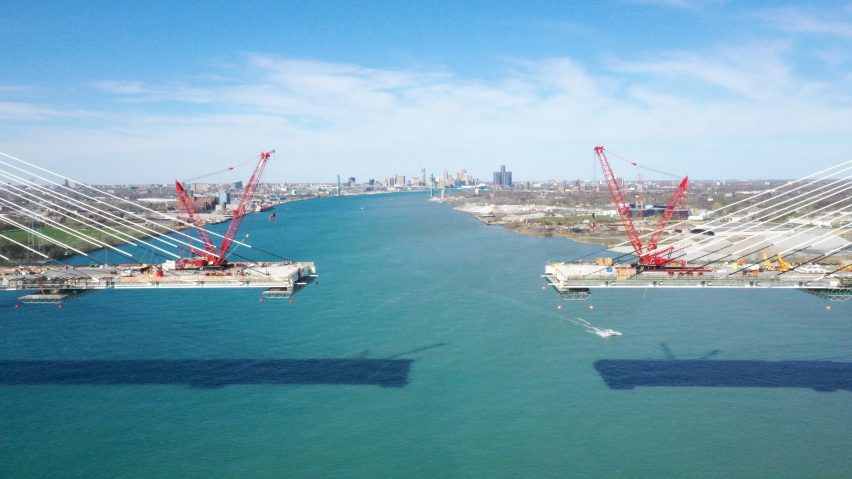
"Once connected, the bridge deck spanning the distance between the two iconic towers will measure 0.53 miles making it the longest main span of any cable-stayed bridge in North America and the tenth longest in the world," said the team.
"It will also be the longest composite steel and concrete bridge deck for any cable-stayed bridge in the world."
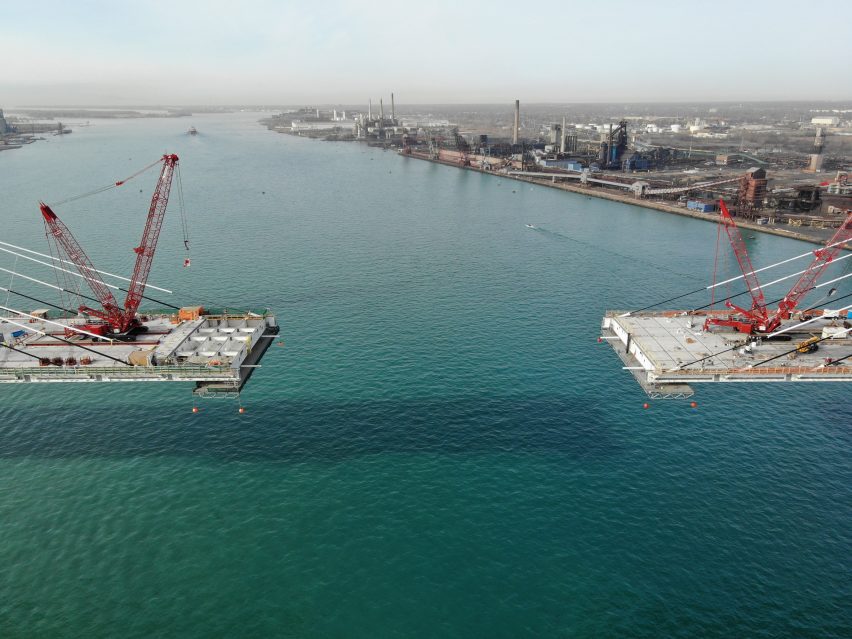
Coordinated by Canadian corporation Windsor–Detroit Bridge Authority (WDBA) with design led by AECOM, the cable-stayed bridge was named after Detroit Red Wings hockey player Gordie Howe.
Its towers were designed to "reflect the curvature of a hockey stick in a slap shot", according to WDBA.
As part of the consortium Bridging North America, other companies involved in the construction of the bridge include Fluor, Dragados Canada and Aecon.
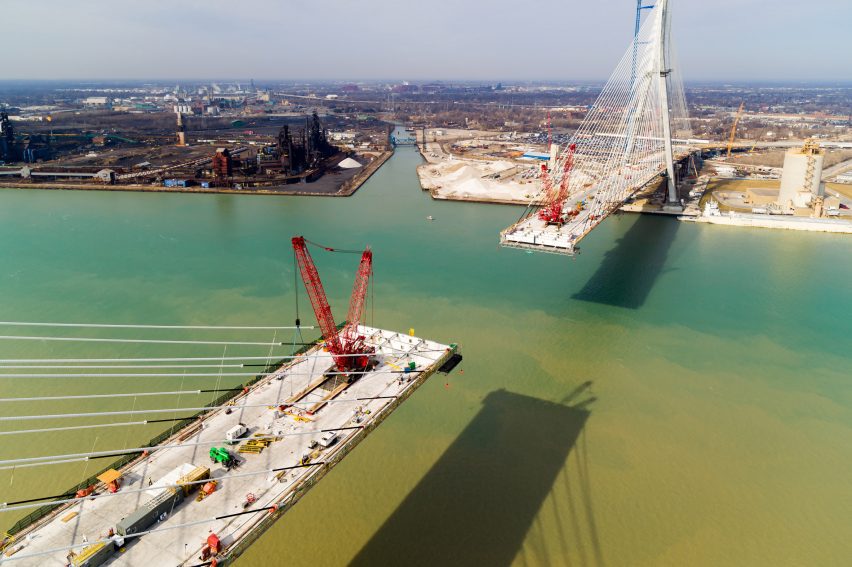
Along with the bridge itself, the completed development will include border inspection facilities on both the US and Canadian sides.
It will also include a toll-free "multi-use path" that will run parallel to its traffic lanes to accommodate two-way pedestrian and cyclist traffic.
"The integration of the multi-use path will benefit communities and travellers by supporting active transportation, healthy lifestyles and enhance cross-border tourism while providing sustainable options for reducing the carbon footprint of cross-border traffic," said the team.
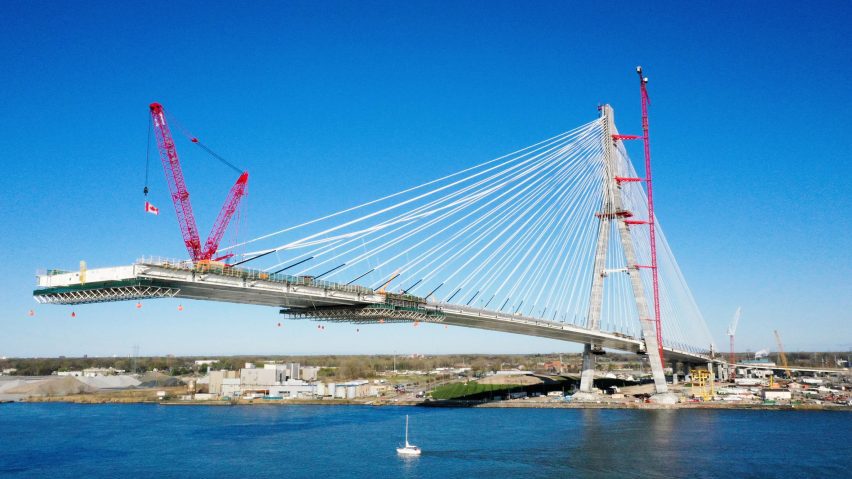
The bridge is expected to open to the public in Fall 2025, with "plenty of work" remaining before then including the installation of electrical, fire safety and drainage systems, barriers, signage, lighting, deck paving, and pavement markings.
Work on the bridge began in 2018, after a 2001 study conducted by US and Canadian parties anticipated the need for an additional crossing as the result of increased traffic.
The bridge provides a publically-owned alternative to the nearby privately owned Ambassador Bridge, which is currently "the busiest international crossing in North America".
"Achieving the bridge deck connection is monumental in the progress on the Gordie Howe International Bridge project," said WDBA CEO Charl van Niekerk.
"After years of planning and construction, we remain on course to open the bridge in fall 2025, and, with that, create new opportunities for economic growth and prosperity."
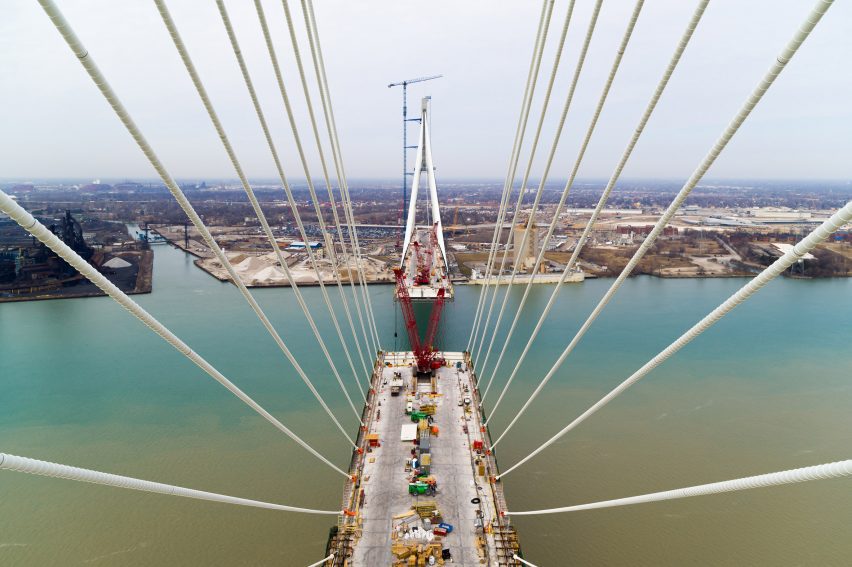
Detroit has seen several urban projects completed recently, including the restoration of a historic train station as part of a Ford campus and several buildings converted into arts centres as part of the Little Village development.
Elsewhere in the two countries, architecture studio Carlo Ratti Associati proposed a replacement cable-stayed design for the collapsed Francis Scott Key Bridge in Baltimore, while Grimshaw Architects completed three bridges in Toronto that link the city to a wetlands regeneration project.
The photography is courtesy of The Gordie Howe International Bridge project.